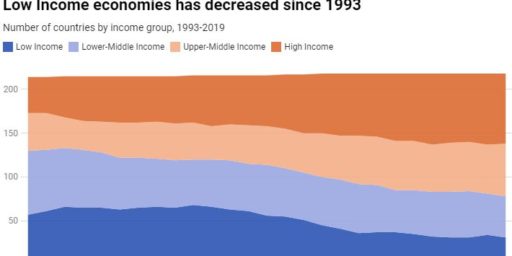Permanent Income and Voting Patterns
Perhaps Democrats should consider permanent income — or peoples’ average incomes over several years — when considering how people might vote. Briefly, the idea is that people base their current period’s consumption on their permanent income rather than that period’s income. There is some support for this and it makes sense if people are forward looking.
In my masters thesis, I used a variation of Friedman’s permanent income hypothesis to estimate a money demand function and it was more predictive than current income. In fact, I was a good example of the PIH in practice: my spending tracked better to my expectations of my earnings than to my current income, which was near zero. My consumption was a good deal above zero based on the assumption that my earning power would return to previous levels, or something close, in time. Likewise, my voting remained the same in spite of the drop in income. If my income had dropped due to political failures, I might have voted differently.
Voting seems like a natural application of this theory:
A single-year snapshot of Census data can show almost 40 percent of the U.S. population making less than $40,000. On paper, that amounts to widespread economic distress. It suggests that something close to a majority of Americans may have a very direct personal stake in supporting social safety net programs for the poor — the programs that the Democratic Party is most commonly identified with in public opinion surveys — because they themselves might need government assistance at some point in their lives.
But because people’s incomes fluctuate from year to year, the more accurate way to measure their economic wellbeing is to look at their average earnings over a longer period, for instance, 15 years. Analyzed that way, the data show that about 23 percent of adults in their prime working years have average family incomes of $40,000 or less. This is the segment of the population with the most direct interest in social safety net programs for people in economic distress.
Via N. Gregory Mankiw.




